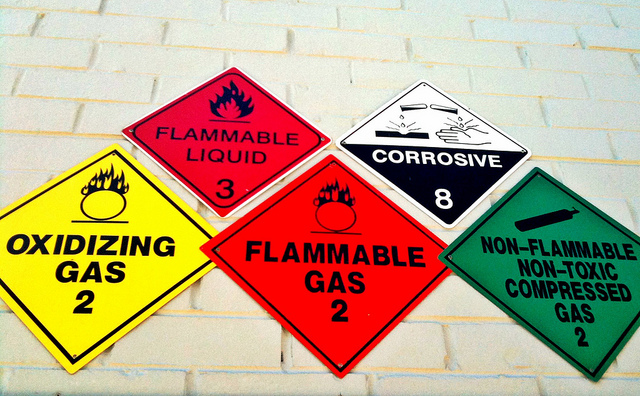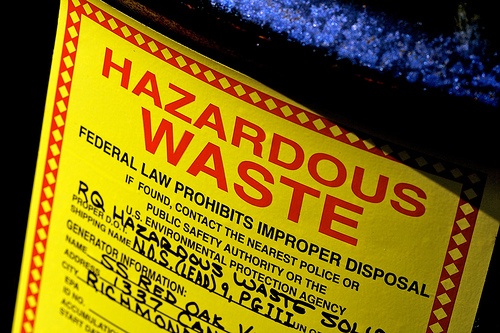On March 1, 2024, the Environmental Protection Agency (EPA) revised Accidental Release Prevention (ARP) program rules under the Clean Air Act (CAA). ARP was authorized by the 1990 Clean Air Act (CAA) Amendments, and is often known by its core requirement that targeted facilities prepare Risk Management Programs (RMPs) to prevent and respond to potential catastrophic releases of chemicals. The adoption finalizes an agency proposal from 2022 (it also recounts a long series of proposal dating back to 2014; I wrote about it HERE), in which the Biden-era EPA proposed to many of the narrowing amendments to RMP/ARP enacted in 2019 during the Trump Administration (I wrote about the 2019 changes HERE).
The rest of this note summarizes the new revisions, noting their differences from current rules.
Read More
Tags:
Health & Safety,
EPA,
CAA,
chemical safety,
Air Toxics,
Clean Air Act,
Toxics Release
This is the time of year when employers in many parts of the continent should be making focused effort to protect workers against winter weather. Occupational safety and health regulators include environmental and ambient hazards among those that employers must consider as part of their “general duty” to protect workers against recognized hazards. Requirements cover potential harm from extreme temperatures including cold, as well as slippery surfaces and other hazards from frozen and melting snow or other precipitation.
Agency regulations cover many specified types of situations, and guidelines are available for more. For example, the U.S. Occupational Safety and Health (OSHA) is drawing attention to its “Winter Weather” webpage as a source of information. The rest of this note summarizes information from OSHA’s webpage and those of other occupational safety agencies.
Read More
Tags:
Health & Safety,
OSHA,
workplace safety,
Winter,
Weather
Saskatchewan’s Employment Act (SEA) requires employers to take action to protect their employees against workplace violence. Since 1997, express requirements have applied to workplaces “prescribed” by regulations based on higher hazards; effective on May 17, 2024 these requirements apply in all workplaces, implementing SEA amendments enacted in 2023 by Bill 91 (“The Saskatchewan Employment (Part III) Amendment Act, 2022”). The rest of this summarizes workplace violence prevention (WVP) requirements set forth in the SEA, and in regulations issued and administered by the Occupational Health and Safety (OHS) Division of Saskatchewan’s Ministry of Labour Relations and Workplace Safety.
Read More
Tags:
Health & Safety,
Workplace violence,
Safety and Health at Work,
workplace safety,
safety violations,
OHS,
SEA
The Environmental Protection Agency (EPA) announced on February 7. 2024 its decision to tighten one the National Ambient Air Quality Standard (NAAQS) for particulate matter less than or equal to 2.5 microns; (PM-2.5; also call “fines” in contrast to larger particulates). This decision completes EPA’s reconsideration of a decision in 2020 not to adjust the PM-2.5 requirements (I wrote about that decision HERE); the change reflects in part the changed priorities between the Trump and Biden administrations. The rest of this note summarizes NAAQS issues as they apply to PM-2.5.
Read More
Tags:
Environmental risks,
Environmental,
EPA,
clean air,
Air Toxics,
Environment,
Clean Air Act,
Environmental Policy
Among its many provisions, the Canadian Environmental Protection Act (CEPA) creates several lists of “toxic substances,” and empowers Environment and Climate Change Canada (ECCC) to revise the list. In 2021, ECCC add “plastic manufactured items (PMI)” to one of these lists, but was sued by manufacturers seeking to void the addition. Extensive CEPA amendments were enacted in April 2023 (“Strengthening Environmental Protection for a Healthier Canada Act” (Bill S-5)), including revisions to the toxic substance lists – including recodification of the listing of PMI – and left ECCC’s authority over toxic substances relatively unchanged, so the litigation continued. In November 2023, the Federal Court ruled that the CEPA amendments did not moot the issues in the litigation, and ruled that ECCC had exceeded its statutory and constitutional authority when listing PMI.
Read More
Tags:
Environmental risks,
Environmental,
Greenhouse Gas,
climate change,
Environment,
Environmental Policy,
Climate,
ECCC,
CEPA
On January 10, 2024, the U.S. Environmental Protection Agency (EPA), U.S. Department of Justice, and the California Air Resources Board (ARB) filed a settlement agreement with Cummins, Inc. covering nearly one million Ram vehicles for which Cummins supplied diesel engines with illegal software-based “defeat devices” that produced misleading emission certification results compared with significantly higher emissions while the vehicles are in actual use. Cummins will pay the largest CAA penalties ever ($1,675 million in federal and state penalties), will fund environmental mitigation projects to compensate for excess nitrogen oxides (NOx) emissions ($175 million), and will also recall 630,000 vehicles (model years 2013-2019) to remove the defeat devices (estimated costs $150 million, including warranty extensions). Cummins will also implement corporate governance, organizational, and technical process reforms to minimize the likelihood of future violations.
Read More
Tags:
Environmental risks,
Environmental,
EPA,
clean air,
Environment,
Clean Air Act,
Environmental Policy
The Occupational Safety and Health Administration’s (OSHA’s) Standard for Process Safety Management of Highly Hazardous Chemicals (usually referred to as “PSM”) requires extensive risk assessments and reduction efforts by facilities where a significant incident involving these chemicals might have catastrophic consequences. OSHA adopted PSM in 1992, and has made only minor technical revisions in the ensuing three decades. OSHA has also issued enforcement guidance to its inspectors, which it had not revised since 2012. However, in December 2023 OSHA issued an extensive new PSM enforcement policy, most of which is formatted in a total of 192 Questions and Responses designed to guide enforcement – and compliance that can obviate enforcement. The remainder of this note provides a very brief summary of the 120 page Enforcement Policy document.
Read More
Tags:
Health & Safety,
OSHA,
Safety and Health at Work,
workplace safety,
chemical safety,
PSM
Many laws provide for civil – and sometimes even criminal – penalties for noncompliance. New legislation typically sets penalty levels (“XXX dollars per day of violation” for example), at levels intended to provide meaningful deterrence and punishment for noncompliance. But over time, the relative sting of these penalties declines with inflation. To counteract the possibility that less painful penalties reduce incentives for compliance, most U.S. federal agencies are required to make annual “cost of living” adjustments to maximum available civil penalty levels (criminal penalties are not affected).
Read More
Tags:
EPA,
2020 US Presidential election,
Inflation,
CPI,
Federal Agencies,
Penalties,
GAO
Federal laws (commonly referred to as RCRA, after the Resource Conservation and Recovery Act of 1976) provide comprehensive management requirements for parties involved in hazardous waste management, from “cradle to grave” covering generators, transporters, and offsite management facilities. Among these many provisions are requirements that “large quantity generators (LQGs)” submit biennial reports to the Environmental Protection Agency (EPA) or delegated states in March of every even-numbered year. March 2024 is the next such deadline, so now is a good time to review biennial report requirements to ensure compliance at qualifying facilities.
Read More
Tags:
EPA,
RCRA,
Hazardous Waste,
AHW,
LQG
On December 21`, 2023, the Occupational Safety and Health Administration (OSHA) announced a notice of proposed rulemaking (NPRM) to develop an Emergency Response Standard that will update, expand and supersede OSHA’s existing Fire Brigades Standard. The new standard will extend detailed OSHA protections to additional emergency responders, including not just firefighters but also emergency medical service providers and technical search and rescue workers. The rest of this note describes these proposed changes.
Read More
Tags:
Health & Safety,
OSHA,
Fire Prevention,
Fire Safety,
NPRM










